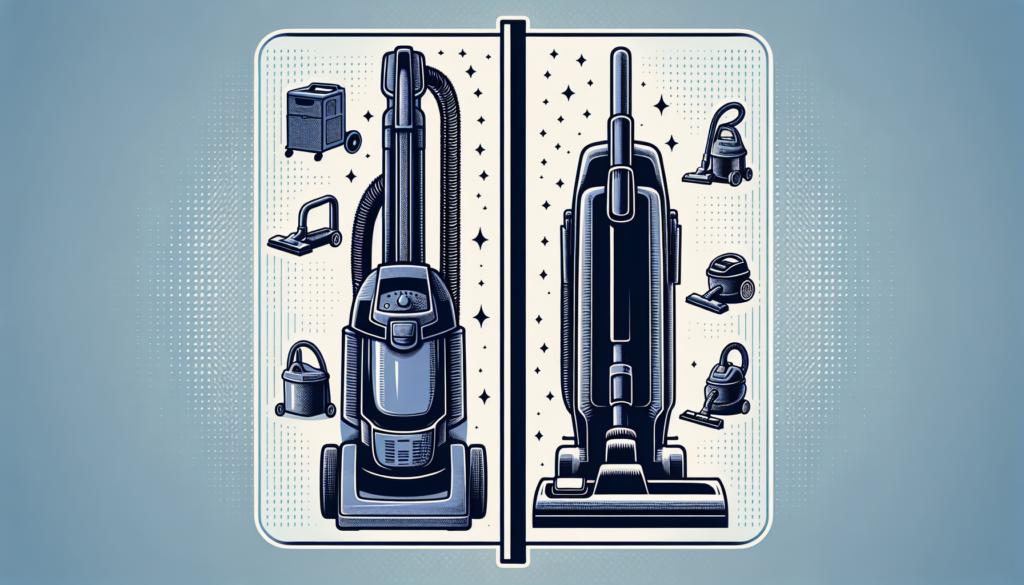If you’re considering buying a new car, there are a few important factors you should consider before making your decision. At BuySellCloud.com, we offer expert buying guides to help you navigate the car-buying process with confidence. Our comprehensive product insights and tips cover various categories, ensuring that you make a well-informed purchase decision. From evaluating your budget and assessing your needs to researching different models and understanding financing options, our guidance will help you find the perfect car for your lifestyle. Trust BuySellCloud.com to provide you with the expertise you need to make the right choice when buying a new car.

Budget
Determining your budget
When buying a car, it’s important to determine your budget upfront. Consider how much you can comfortably afford to spend without putting yourself in financial strain. Take into account factors such as your monthly income and expenses, including any other existing financial commitments. Having a clear understanding of your budget will help you narrow down your options and avoid overspending.
Considering financing options
Once you’ve determined your budget, consider financing options that may be available to you. This can include traditional bank loans, financing through the dealership, or leasing options. Each option has its own set of pros and cons, so it’s important to research and compare them to find the one that best suits your financial situation and preferences.
Factoring in additional costs
In addition to the cost of the car itself, it’s important to factor in the additional costs that come with owning a car. These can include expenses such as insurance, registration, maintenance, and fuel. Consider how these costs will impact your overall budget and make sure to account for them when determining how much you can afford to spend on a car. Doing so will ensure that you have a realistic understanding of the total cost of ownership.
Research
Identifying your needs
Before diving into the world of car research, take some time to identify your needs. Consider factors such as your lifestyle, daily commute, and the primary purpose of the car. Are you looking for a compact car for city driving or a spacious SUV for a growing family? Knowing your specific needs will help you narrow down your options and find a car that aligns with your requirements.
Researching different car models
Once you’ve identified your needs, it’s time to dive into researching different car models. Start by looking at models that are known for meeting your requirements and explore their features, specifications, and performance. Read reviews from experts and users to gain insights into the real-life experiences of owning these cars. This research will help you create a shortlist of potential models that meet your needs and preferences.
Comparing prices
Price comparison is a crucial step in the car-buying process. Research and compare the prices of the car models you’re interested in from different dealerships and online platforms. Keep in mind that prices can vary based on factors such as location, features, and negotiations. By comparing prices, you can ensure that you’re getting the best deal possible and avoid overpaying for a car.
Reading expert and user reviews
Expert and user reviews are invaluable when it comes to making an informed car-buying decision. Experts provide insights into the performance, reliability, and overall quality of different car models. User reviews, on the other hand, offer real-life perspectives on owning and driving these cars. Pay attention to both positive and negative reviews to get a comprehensive understanding of the pros and cons of each model you’re considering.

New or Used
Weighing the pros and cons of buying new vs. used
One of the first decisions you’ll need to make is whether to buy a new or used car. Both options have their own set of advantages and disadvantages. New cars offer the latest features, technology, and warranties, but they come with a higher price tag. Used cars, on the other hand, are typically more affordable but may have higher maintenance costs and a more limited selection. Consider your budget, preferences, and priorities when deciding which option is best for you.
Considering the depreciation rate
Depreciation is an important factor to consider when deciding between a new or used car. New cars typically experience their most significant depreciation in the first few years, losing a substantial portion of their value. Used cars, on the other hand, have already gone through this initial depreciation phase. By considering the depreciation rate, you can assess the long-term value of the car and make a more informed decision about your purchase.
Checking the warranty and history of used cars
If you’re leaning towards buying a used car, it’s crucial to check the warranty and history of the vehicle. Look for used cars that still have an active manufacturer’s warranty or consider purchasing an extended warranty for added peace of mind. Additionally, obtain a vehicle history report to gain insights into the car’s past ownership, accident history, and maintenance records. This will help you make a more informed decision and avoid any potential surprises down the road.
Fuel Efficiency
Evaluating fuel efficiency ratings
Fuel efficiency is an important consideration, as it directly impacts your ongoing costs of owning a car. Evaluate the fuel efficiency ratings of the car models you’re interested in to determine their average fuel consumption. Models with higher fuel efficiency will help you save money on fuel costs in the long run. Consider your typical driving patterns and fuel prices in your area to assess how fuel efficiency fits into your overall budget.
Considering hybrid or electric options
With increasing concerns about the environment and rising fuel costs, it’s worth considering hybrid or electric options. Hybrid cars combine traditional combustion engines with electric motors, providing improved fuel efficiency and reduced emissions. Electric cars run solely on electricity, eliminating the need for traditional fuel altogether. Evaluate your driving habits, accessibility to charging stations, and budget to determine if a hybrid or electric car is a viable option for you.
Calculating potential savings on fuel costs
To truly understand the impact of fuel efficiency on your budget, calculate the potential savings on fuel costs. Compare the estimated annual fuel costs of different car models to determine the long-term savings. While a more fuel-efficient car may have a higher upfront cost, the savings on fuel expenses over time can make it a more cost-effective option. This calculation will help you make an informed decision based on your budget and priorities.

Safety Features
Researching the latest safety features
Safety should always be a top priority when buying a car. Research the latest safety features available in the car models you’re considering. Look for features such as advanced driver-assistance systems (ADAS), lane departure warning, blind-spot detection, and automatic emergency braking. These features can significantly enhance your safety on the road and reduce the risk of accidents.
Understanding crash test ratings
In addition to researching safety features, it’s crucial to understand crash test ratings. Organizations such as the National Highway Traffic Safety Administration (NHTSA) and the Insurance Institute for Highway Safety (IIHS) conduct crash tests on various car models and rate them based on their performance. Look for cars with high crash test ratings to ensure that you’re investing in a vehicle that prioritizes your safety.
Considering features like adaptive cruise control and automatic emergency braking
When it comes to safety features, consider features like adaptive cruise control and automatic emergency braking. Adaptive cruise control adjusts your car’s speed to maintain a safe distance from the vehicle ahead, reducing the risk of rear-end collisions. Automatic emergency braking detects potential collisions and applies the brakes if necessary to prevent or mitigate the impact. These features can provide an extra layer of protection and enhance your driving experience.
Performance
Considering horsepower and torque
Performance is an important aspect to consider when buying a car, especially if you enjoy a spirited driving experience. Evaluate the horsepower and torque of the car models you’re interested in to gauge their power and acceleration capabilities. Higher horsepower and torque generally translate to quicker acceleration and a more thrilling driving experience. Consider your preferences and driving style to determine the level of performance that suits you best.
Evaluating handling and suspension
In addition to horsepower and torque, evaluate the handling and suspension of the car models you’re considering. Good handling ensures that a car responds well to steering inputs, providing a smooth and predictable driving experience. Suspension plays a vital role in the car’s comfort and stability, absorbing bumps and ensuring a comfortable ride. Test drive different models to get a firsthand experience of their handling and suspension characteristics.
Deciding between manual or automatic transmission
When it comes to transmission, the choice between manual and automatic is a personal preference. Manual transmission allows for more control and engagement with the car, making it a popular choice for driving enthusiasts. Automatic transmission, on the other hand, offers convenience and ease of use, especially in heavy traffic. Consider your driving habits, preferences, and comfort level with each transmission type to make the best decision for your driving needs.

Technology
Exploring infotainment systems
In today’s connected world, infotainment systems play a significant role in our driving experience. Explore the infotainment systems offered by different car models to assess their features and functionality. Look for features such as touchscreen displays, smartphone integration, navigation systems, and voice controls. Having an intuitive and feature-rich infotainment system can enhance your driving experience and keep you entertained and connected on the road.
Checking connectivity options
Connectivity options are another important consideration in today’s technology-driven era. Check whether the car models you’re interested in offer features such as Bluetooth connectivity, USB ports, and wireless charging pads. These features allow you to seamlessly connect your devices and keep them charged while on the go. Consider your connectivity needs and preferences to ensure that the car you choose aligns with your digital lifestyle.
Considering driver-assistance technologies
Driver-assistance technologies have made significant advancements in recent years, making our driving experience safer and more convenient. Consider car models that offer driver-assistance technologies such as lane-keeping assist, parking assist, and blind-spot monitoring. These technologies provide additional layers of safety and assist you in various driving situations. Evaluate the availability and effectiveness of these technologies in the car models you’re considering to make an informed decision.
Space and Size
Determining passenger capacity
If you frequently have passengers or have a growing family, passenger capacity is an important consideration. Evaluate the number of available seats in the car models you’re interested in to ensure that they can accommodate your needs. Consider whether you need additional seating for occasional guests or if a smaller, more compact option suits your lifestyle better. Determining passenger capacity will help you find a car that fits your needs now and in the future.
Evaluating cargo space
Cargo space is another critical factor to evaluate, especially if you regularly transport bulky items or frequently go on road trips. Evaluate the cargo space dimensions, including the trunk capacity and the flexibility of the seating arrangement. Foldable seats and adjustable cargo configurations can provide additional convenience and flexibility when you need to transport larger items. Carefully assess your cargo needs to find a car that offers ample space to accommodate them.
Considering parking and maneuverability
Parking and maneuverability should not be overlooked when considering a new car. Evaluate the size and dimensions of the car models you’re interested in to ensure that they can navigate through tight parking spaces and maneuver easily in urban environments. Smaller cars or those with features like backup cameras, parking sensors, and advanced parking assist systems can make parking and maneuvering less stressful. Consider your daily driving environment and parking requirements to find a car that suits your needs.

Resale Value
Researching the future resale value
While buying a car is an investment, it’s important to consider the future resale value as well. Research the resale value of different car models to assess their long-term value retention. Some cars depreciate at a slower rate than others, which can be advantageous if you plan on selling or trading in your car in the future. Look for models that have a strong reputation for holding their value to ensure that your investment retains its worth.
Considering popular models and brands
Popular models and brands often have a higher demand in the used car market, leading to better resale value. Consider buying a car from a popular brand or model that has a strong market presence and widespread appeal. These cars are more likely to retain their value over time, making them a wise choice if you value long-term value retention and potential resale opportunities.
Checking historical resale data
To gain a deeper understanding of the resale value of different car models, check historical resale data. This information can provide insights into how well certain models have held their value over the years. Make use of online resources, automotive publications, and market trends to assess a car’s resale potential. By considering historical resale data, you can make a more informed decision and choose a car that aligns with your long-term financial goals.
Additional Features
Considering luxury features
If you’re looking for added comfort and luxury, consider cars that offer premium features. These can include features such as leather seats, advanced sound systems, panoramic sunroofs, and high-end interior finishes. Luxury features can enhance your driving experience and make every journey more enjoyable. However, keep in mind that these features often come with a higher price tag, so ensure that they align with your budget.
Exploring customization options
Personalization is important to many car buyers, and exploring customization options can help you find a car that matches your unique style and preferences. Look for car models that offer a range of customization options, such as exterior paint colors, interior finishes, and optional add-ons. This allows you to create a car that reflects your personality and stands out on the road.
Researching available trim levels
Car manufacturers often offer different trim levels for their models, each with its own set of features and specifications. Research the available trim levels for the car models you’re interested in to understand the different options and their corresponding features. This will help you find the trim level that offers the right combination of features and value for your needs.
In conclusion, buying a new car requires careful consideration of various factors. Start by determining your budget and considering financing options. Conduct thorough research into different car models, comparing prices and reading expert and user reviews. Weigh the pros and cons of buying new versus used, considering the depreciation rate and checking the warranty and history of used cars. Evaluate fuel efficiency ratings and consider hybrid or electric options to save on fuel costs. Research the latest safety features, understand crash test ratings, and consider performance factors such as horsepower, torque, handling, suspension, and transmission. Explore infotainment systems, connectivity options, and driver-assistance technologies. Determine passenger capacity, evaluate cargo space, and consider parking and maneuverability. Research the future resale value, consider popular models and brands, and check historical resale data. Finally, consider additional features such as luxury features, customization options, and available trim levels. By going through these considerations and conducting thorough research, you’ll be well-equipped to make an informed and confident purchase decision when buying a new car.




